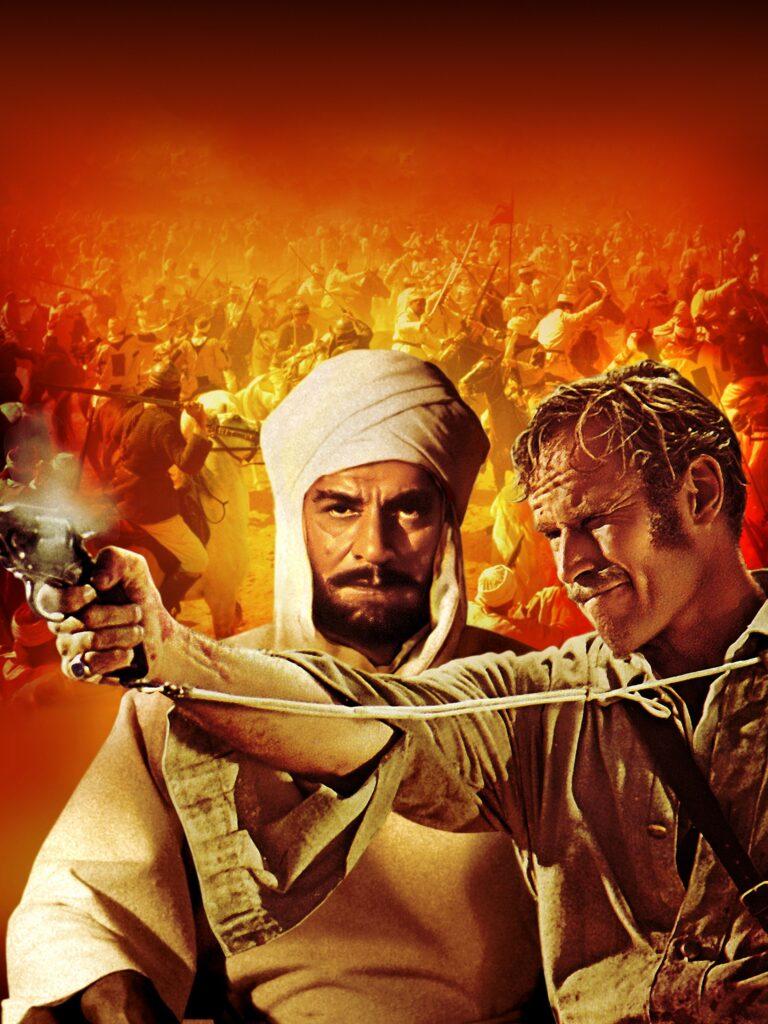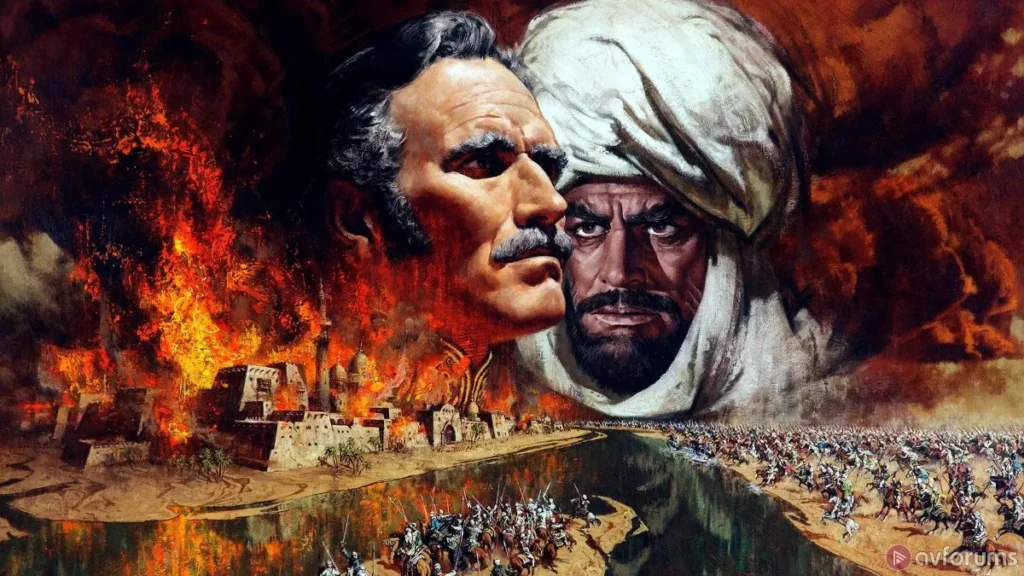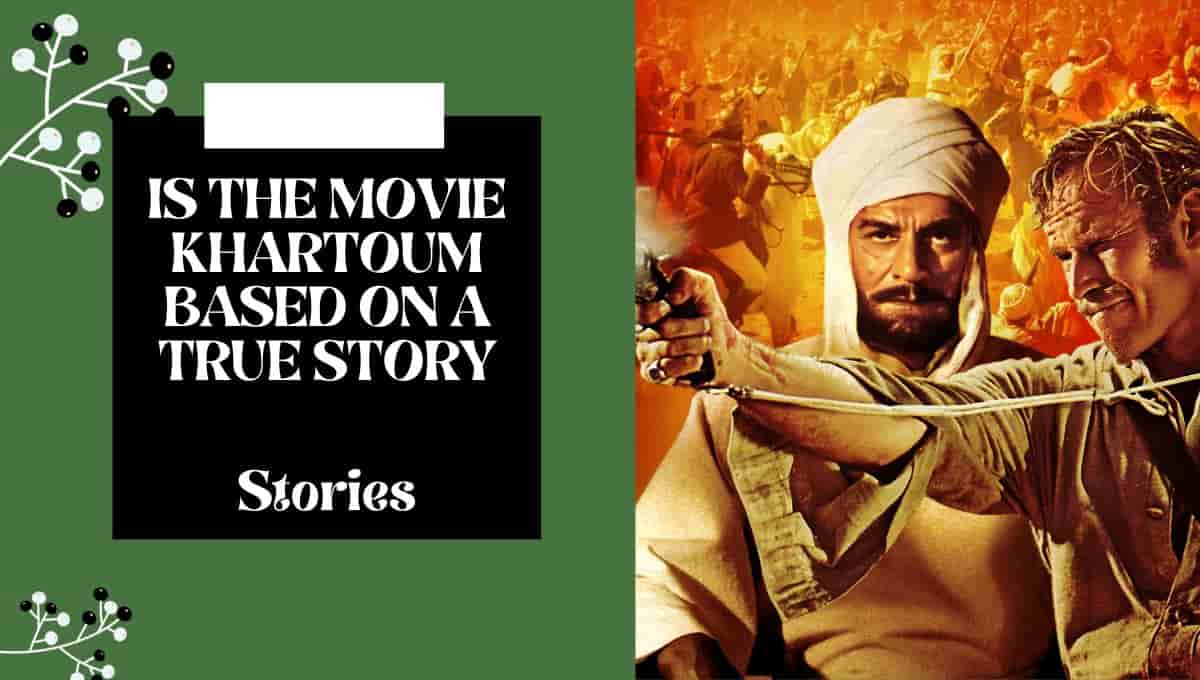Is the movie Khartoum based on a true story
Is the movie Khartoum based on a true story – Muhammad Ahmad was a significant figure in Sudanese and Islamic history. He was a theocrat, a military leader, and a self-proclaimed Mahdi, a messianic figure awaited by some Muslims. His life story is a compelling narrative of conquest, conflict, and imperial intervention. In this article, we will delve into the life of Muhammad Ahmad, exploring his personal background, career, and the impact he had on Sudan and beyond.

Muhammad Ahmad was born in the mid-19th century, in the region that is now Sudan. His exact date of birth is not widely documented, but it is believed to have been around 1844. Little is known about his family and early upbringing, but his later actions would thrust him into the spotlight on a global scale.
Rise to Power and the Proclamation of Mahdi
In 1881, Muhammad Ahmad declared himself the Mahdi, a figure prophesied to appear before the Day of Judgment in Islamic tradition. This proclamation marked a turning point in his life. The Mahdi was seen as a divinely guided redeemer who would bring justice and righteousness to the world. Muhammad Ahmad’s claim to this title sparked a fervent following, and he began to gather supporters around him.
Conquest and Conflict
One of the most notable aspects of Muhammad Ahmad’s life was his military prowess. Under his leadership, his followers, known as Mahdists, launched a campaign to conquer large areas of the Nile valley. In the process, they clashed with Egyptian forces and annihilated three Egyptian armies. This military success was a testament to Muhammad Ahmad’s leadership and the dedication of his followers.
Imperial Involvement
As Muhammad Ahmad’s influence expanded and his forces gained ground, the British Empire became increasingly involved in the region. They supported the Egyptian forces against the Mahdists. The involvement of the British added a complex layer to the ongoing conflict in Sudan, as it was intertwined with imperial ambitions and geopolitical interests.
The Khartoum Episode
The city of Khartoum became a focal point of the conflict, as it witnessed a dramatic confrontation between Muhammad Ahmad and General Charles “Chinese” Gordon. This episode is particularly intriguing because of the contrasting personalities and roles of these two individuals.
General Gordon, played by Charlton Heston in a 1966 film adaptation, was a British military officer sent to Sudan to evacuate Egyptian forces from Khartoum. His character is portrayed as a stoic and dedicated figure, deeply committed to the land and its people. In contrast, Muhammad Ahmad, portrayed by Laurence Olivier in a controversial casting choice, is shown in blackface, with a dubious attempt at a Sudanese accent.
The film adaptation’s portrayal of these historical figures has faced criticism for its inaccuracies and the use of blackface, which is now widely recognized as offensive and inappropriate. Despite these issues, the film was nominated for an Oscar, highlighting the complexities of historical representation in cinema.
Imperialism and Politics
A significant portion of the Khartoum narrative revolves around the intricate politics of British imperialism in the region. The film attempts to depict how Britain became embroiled in a Sudanese imperial adventure. However, this aspect of the story is less cinematic and more about men with facial hair sitting in armchairs and making decisions.
While the film introduces desert battles to add excitement, these scenes are criticized for their poor filming and editing, making them challenging to follow. In parallel, scenes depicting public support for General Gordon in London seem more reminiscent of 1960s demonstrations than historical accuracy.
Violence and Conflict
One of the film’s most dramatic scenes involves Muhammad Ahmad presenting the severed head of Times correspondent Frank Power and the hand of Colonel Stewart to General Gordon. While this makes for a gripping cinematic moment, it strays from historical accuracy.
In reality, Power and Stewart were indeed murdered by Mahdists, but there was no gruesome meeting where Muhammad Ahmad used body parts to intimidate Gordon. Instead, he sent polite letters to Gordon, urging him to leave Sudan to prevent further bloodshed.
The Final Battle
The climax of the film depicts the Mahdists storming Khartoum, with General Gordon bravely facing them. In a moment inspired by George William Joy’s painting, “The Last Stand of General Gordon,” Gordon is shown being struck by a spear in a highly romanticized scene.
In truth, the historical account of Gordon’s death differs. He did come out shooting but ran out of ammunition on a staircase. Accounts suggest he was killed by a gunshot to the chest, not a spear, and it may have been a case of mistaken identity in the dim light. Muhammad Ahmad, though brutal in many aspects, specifically ordered that Gordon should not be killed.

Legacy
Muhammad Ahmad’s life was marked by religious fervor, military conquest, and a clash of civilizations. His role as the Mahdi and his leadership of the Mahdist movement had a profound impact on Sudan and the broader Islamic world. His story is a complex one, filled with historical inaccuracies in its cinematic portrayals.
Conclusion
Despite the controversies and cinematic liberties taken with his story, Muhammad Ahmad remains a significant historical figure. His legacy is a reminder of the complex interplay of religion, politics, and imperialism in the late 19th century and its enduring consequences for the Sudanese people and the world.
Is the movie Khartoum accurate?
The movie “Khartoum,” released in 1966, tells the story of the Siege of Khartoum in 1884-1885. It portrays General Charles Gordon’s defense of the city against the forces led by the religious leader al-Mahdi. While the movie is based on historical events, it takes some creative liberties and isn’t entirely accurate in its portrayal of the events and characters.
How many horses died filming Khartoum?
In a book about the making of the movie “Khartoum,” it was initially claimed that not a single horse was harmed during filming. However, later investigations revealed that more than a hundred horses were either seriously injured and had to be euthanized or died immediately due to unethical and dangerous stunt methods used in the production.
Who won the battle of Khartoum?
The Siege of Khartoum, also known as the Battle of Khartoum or the Fall of Khartoum, occurred from March 13, 1884, to January 26, 1885. During this time, Sudanese Mahdist forces successfully captured the city of Khartoum from the Egyptian garrison, giving them control over the entire region of Sudan. So, in this battle, the Mahdists emerged victorious.
Read More Bio








